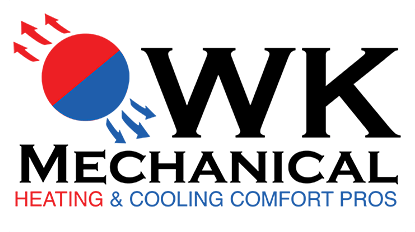
Hard water is a common problem in Hudson Valley homes. At WK Mechanical, Inc., we offer solutions for hard water to keep your water flowing properly. Here is how a hard water softener works.
What Is Hard Water?
When water is considered “hard,” it means it contains high levels of calcium and magnesium. While these minerals may be good for your body, they can wreak havoc on your pipes, appliances, and even your skin. The problem with hard water is that the minerals attach to the inside of your pipes. Over time, the minerals form colonies that can block your pipes. Calcium and magnesium also attach to the inside of plastic tubes, such as the ones used for dishwashers. If you have ever seen a hard, white buildup on your faucets, showerheads, or bathroom tiles, this is the result of hard water. Left untreated, these hard water buildups can eat through the materials of your pipes and fixtures.
Benefits of a Hard Water Softener
A hard water softener removes excessive calcium and magnesium from household water. The benefits of this are:
- Saves money on repairs to your plumbing, water-based appliances, and fixtures
- Healthier skin and hair
- Reduces energy consumption
- Cleaner clothes and dishes
- Prevents damage to fixtures
Ion Exchange
Removing calcium and magnesium from residential water can be achieved with chemicals, but few Hudson Valley homeowners like the idea of putting chemicals into the same water they drink and use on a daily basis. A water softener uses an ion exchange to eliminate calcium and magnesium. A hard water softener has a tank inside that is filled with small beads that have a negative charge. Calcium and magnesium have positive charges. As water passes through the tank, the positive charge of the minerals attracts them to the negative charge of the beads.
Brine Solution
Water softeners have a second tank that contains a brine, or sodium-based solution. The beads covered in calcium and magnesium go through the brine tank. The positive charge of the sodium causes the minerals to detach from the beads, and the minerals are replaced with sodium.
Backwash and Recharge Phases
The final step in water softening is the flushing and refilling of the tank. Water moves into the tank to clean out any residue and sediment, and water that now contains sodium is moved to the tank with the beads. As the water passes through the beads, the same ion exchange causes the sodium to attach to the beads, replacing calcium and magnesium. Both minerals are then removed through a drain, leaving behind soft, mineral-free water for your house.
Types of Water Softeners
When you are looking to buy a new hard water softener for your Hudson Valley home, you may come across units with a computer, an electric timer, or a water meter. Computer-based units monitor how much water is being used in your house by measuring the amount in the mineral tank. When the water reaches a certain level, the unit automatically starts to soften more water to provide a continuous supply. Units with electric timers are more affordable, but they may not meet the needs of every household. These units soften water on a set schedule. If you have periods of higher water use, such as in the morning, you may not have any soft water available until the timer expires. Hard water softeners with mechanical meters perform the same way as computer-based models, but they do not need electricity to operate.
Do You Have Hard Water?
By the time you notice the signs of hard water, your pipes, appliances, and fixtures may already have some level of damage. If you would like to find out if you have hard water, you can purchase a test kit from a local home improvement or hardware store. The experts at WK Mechanical, Inc. can also send over a technician to test your water. The test shows results in grains per gallon. Soft water is defined as having one or fewer grains per gallon. When the test shows between 3.5 and 7 grains per gallon, you have moderately hard water. Testing your water for hardness not only lets you know if you have a problem, but also guides your buying decision. Hard water softeners are designed to treat specific ranges of hardness. In rare cases, we have seen excessively hard water that measures over 100 grains per gallon, and the minerals cannot be completely removed.
Your Hard Water Experts
WK Mechanical, Inc. is here to help you find the best hard water softener for your Hudson Valley home. We can also help with your heating, cooling, and indoor air quality needs. Call us today to speak with one of our experts.

